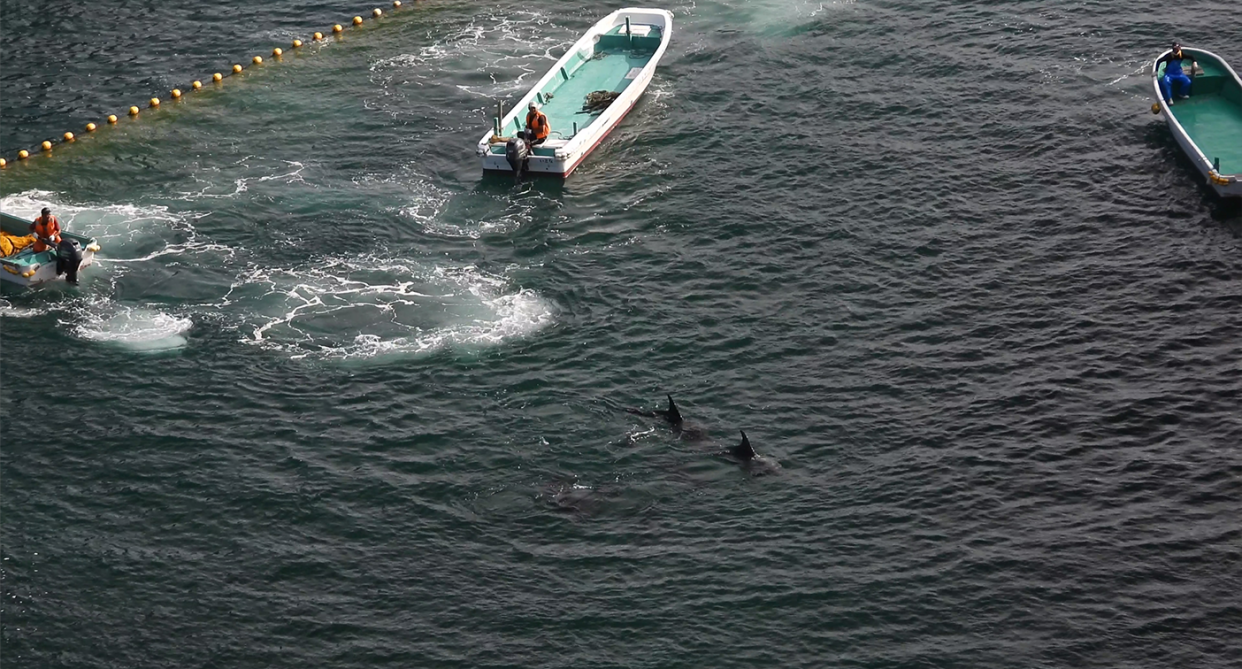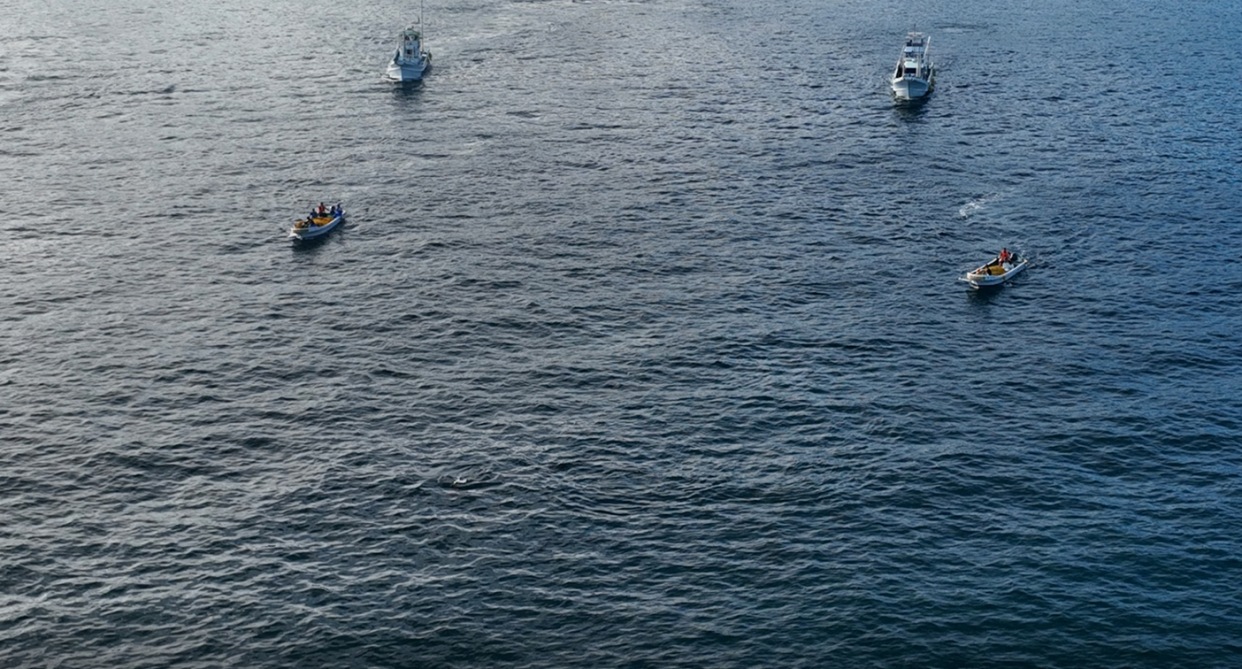Witness horrified as Japan resumes dolphin hunting: 'Very sad'
Japan has resumed its controversial dolphin hunting season, killing at least nine on Friday morning.
Footage shot by Japanese activists at Taiji, south of Osaka, shows a small pod of Risso’s dolphins being herded under a structure where they were slaughtered.
Moments later, two skiffs hauled the dead animals out of the cove. Aware of the cameras focused on their activities, the hunters then quickly covered up their kills with tarpaulins.

Ren Yabuki, from animal welfare group Life Investigation, became emotional as he filmed the slaughter from the shore, live streaming it on Facebook.
He is one of a growing number of Japanese nationals who travel to Taiji each year to witness and document the hunts.
“I’m so sorry. So sad. Very, very sad day,” he can be heard saying during the live stream.
“(I’ve) no voice, I’m so sorry.”
Why a veteran activist became emotional
Speaking with Yahoo News Australia from Taiji, Mr Yabuki said the first day the hunters carry out a slaughter is always hard to watch, but there was another reason he was so affected.
“Everyone viewing the live stream, they were watching the dolphins from my camera on the ground, but I was also using a drone,” he said in Japanese.
“I could see the dolphin’s movement clearly. They were trying to escape many times. They were struggling.
“It was very hard to watch because you’re looking at it, but there’s nothing you can do to stop it.”
Why does Japan slaughter dolphins?
Dolphins are butchered and sold in supermarkets, but the popularity of their meat has declined. Like all large, long-lived marine creatures dolphin flesh is high in mercury, making it dangerous to eat.
Sales of meat alone do not make the hunt financially viable, so each year tens, sometimes hundreds, of animals are captured and sold to theme parks, primarily in China.
Once trained, dolphins can sell for tens of thousands of dollars, although most animals are not long-lived once confined in tanks.
While some dolphin hunting was traditionally carried out in Japan, the commercial slaughter of dolphins only began in the 1960s.

Taiji’s annual dolphin hunt gained global attention in 2009, with the release of the Academy Award winning documentary The Cove.
The film followed Dolphin Project founder Ric O’Barry as he campaigned in Japan to try and stop the slaughter.
Over subsequent years, his US and Australian followers had been responsible for documenting the hunt, but with Japan’s borders closed to travellers because of the Covid-19 pandemic, local activists have taken up the cause.
Japanese nationals now carry out annual demonstrations ahead of dolphin season, and members of the political right stage counter protests.
Do you have a story tip? Email: newsroomau@yahoonews.com.
You can also follow us on Facebook, Instagram, TikTok and Twitter and download the Yahoo News app from the App Store or Google Play.



